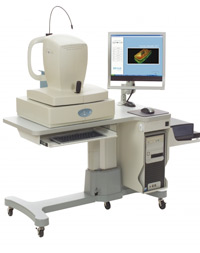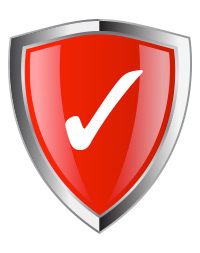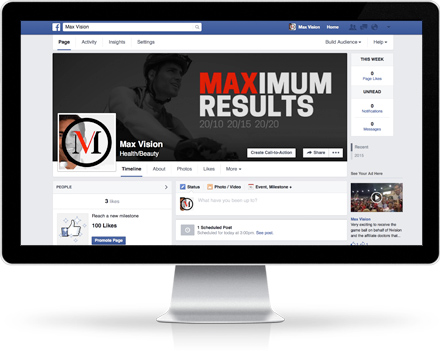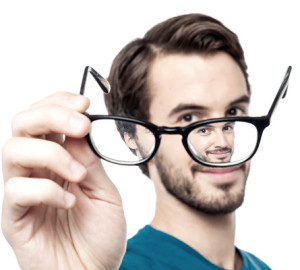Experience A Lifetime of Optimal Vision & Eye Health
Laser vision correction surgery can correct almost any vision condition, including myopia (nearsightedness), hyperopia (farsightedness), presbyopia (inability to focus close-up), and astigmatism. It can also correct vision where there is a dual diagnosis, such as myopia and presbyopia. Bladeless custom LASIK, or PRK, can be used to treat myopia, hyperopia, presbyopia, or astigmatism. The laser technique is chosen by the surgeon to match each patient’s unique needs rather than to match a specific eye condition. For patients with cataracts, Dr. Parikh offers cataract surgery. Cataract patients can also choose to have laser vision correction surgery, if appropriate.

Advanced Technology
The first laser eye center in California and Nevada to offer the latest and most advanced Femto surgical laser – the Ziemer Crystal Line.
READ MORE
Exceptional Experience
Board certified for more than 12 years, Dr. Parikh has performed more than 16,000 LASIK procedures, including many high profile patients.
READ MORE
Lifetime Commitment
Is our assurance that if an enhancement is medically advisable to maintain vision results, eligible and participating patients are entitled to the procedure without charge.
READ MOREAre You a Candidate?

Laser vision correction surgery can correct almost any vision condition, including myopia (nearsightedness), hyperopia (farsightedness), presbyopia (inability to focus close-up), and astigmatism. It can also correct vision where there is a dual diagnosis, such as myopia and presbyopia. Bladeless custom LASIK, or PRK, can be used to treat myopia, hyperopia, presbyopia, or astigmatism. The laser technique is chosen by the surgeon to match each patient’s unique needs rather than to match a specific eye condition.
For patients with CATARACTS, Dr. Parikh offers cataract surgery. Cataract patients can also choose to have laser vision correction surgery, if appropriate.
Vision Conditions & What They Mean
If you wear glasses or contacts for distance vision, you probably have myopia (nearsightedness).
If you wear glasses or contacts for close-up vision, you most likely have hyperopia (farsightedness).
If you wear reading glasses, you may have astigmatism or presbyopia.
If you wear bifocal glasses, you likely have presbyopia.
If you have foggy vision, you may have a cataract.
Eligibility Requirements for LASIK
- Good candidates are at least 18 years of age and in good general health.
- Good candidates should be free of eye diseases, including keratoconus, glaucoma, cataracts and certain retinal and optic nerve diseases. Candidates should be free of certain eye viruses, including herpes simplex and herpes zoster. Good candidates should also be free of certain health problems, including uncontrolled diabetes, autoimmune or collagen vascular disease, and any medication or conditions which render the patient immunocompromised.
- Patients should make their doctors aware of any eye problems such as amblyopia (lazy eye), strabismus (muscle imbalance), severe dry eyes, previous eye surgery or injury, or any recurrent, residual or active eye conditions that may affect healing. Other conditions that should be discussed with a doctor include keloid scarring with previous surgical healing, back problems, claustrophobia or other psychological problems that may affect the surgery or recovery.
- It is critical that a potential laser vision correction candidate has obtained a stable prescription for at least one year. Since hormones may affect the stability of your prescription, pregnant or nursing women are not eligible to pursue laser vision correction until two menstrual cycles after nursing has been discontinued. This is to make sure that the best results are achieved with the surgery and to try to limit fluctuations in prescription that can occur with hormonal shifts.
- If you’d like to talk with someone who has had laser vision correction with Dr. Parikh, we’d be happy to put you in touch with patients who can discuss their experiences with you.
- A screening with Dr. Parikh is the best way to determine if you are an appropriate candidate and what your probable outcome may be. If you do not have an eye doctor who is trained in laser vision correction, Dr. Parikh will refer you to an experienced laser vision correction doctor in your area.
Dr. Parikh offers a FREE consultations to help determine if you’re a good candidate for laser vision correction surgery.
VISION for Life™
WHAT IS VISION FOR LIFE™?
VISION for Life is our commitment to you that we stand behind your vision results for life. We have confidence in our surgeons and in the stability of our patients’ results over the long term. Our intention is to help you maintain the best possible vision throughout your lifetime. The primary benefit of the VISION for Life program is our assurance that if an enhancement is medically advisable to maintain vision results, eligible and participating patients are entitled to the surgical enhancement procedure with any VISION for Life surgeon nationwide, at no charge.
Locate VISION FOR LIFE Surgeon in your state, visit www.VisionForLifeUS.com
WHO IS ELIGIBLE FOR THE VISION FOR LIFE PROGRAM?
You are eligible if you are in good general eye health and have had your initial laser eye treatment at a VISION for Life center by a VISION for Life–affiliated surgeon. Please read the program’s detailed guidelines for complete information. To maintain eligibility in the VISION for Life program, you need to have an annual eye exam performed by your eye doctor.
WHAT IF I REQUIRE A CUSTOM LASIK ENHANCEMENT AND THE TECHNOLOGY HAS CHANGED?
If you have maintained eligibility in the VISION for Life program and originally had a Custom LASIK procedure, you are eligible for a Custom LASIK enhancement at no charge. However, if the LASIK technology required for your enhancement has advanced since your original procedure, you will be charged the difference in retail cost between the old and new technologies.
WHAT IF I DO NOT MEET THE VISION FOR LIFE ELIGIBILITY AND EXCLUSION GUIDELINES?
If an enhancement is medically advisable within 12 months of your procedure and you do not meet the VISION for Life eligibility and exclusion guidelines listed below, you will still receive:
• A 50% discount off our usual and customary fees for the enhancement procedure.
Additional fees for post-operative care may apply. The fees will be determined by the VISION affiliate doctor and must be paid to the doctor by the patient.
HOW DO I ENROLL IN THE VISION FOR LIFE PROGRAM?
Eligible patients are automatically enrolled in the VISION for Life program upon completion of their laser vision correction procedures. The VISION for Life passport and guidelines will be provided on the day of your procedure. You must sign a VISION for Life Commitment Acknowledgment, stating
you understand the conditions of the program.
ELIGIBILITY & EXCLUSION GUIDELINES
ELIGIBILITY GUIDELINES
Laser Vision correction patients must meet the following criteria to be eligible and to maintain eligibility for the VISION for Life program:
1. The patient must be treated at a VISION for Life center for his or her initial procedure by an eligible VISION for Life affiliated surgeon and have a myopic spherical equivalent of -10.00 D or less and/or astigmatism of no greater than -3.00 D at the time of treatment, or the patient must have a hyperopic spherical equivalent of a +4.00 D or less and/or astigmatism of no greater than a -2.00 D at the time of treatment.
2. The patient must have a best corrected (aided) vision of 20/40 distance vision or better prior to the laser
refractive procedure.
3. The patient must have followed the complete course of post-operative treatment required during the first
12 months after the procedure (initial and enhancements, if any), including post-operative follow-up visits,
as prescribed by the VISION for Life–affiliated surgeon and affiliated eye doctor.
4. The patient must be current in all payments due to VISION or its affiliates for laser vision correction.
5. Following completion of the post-operative treatment period of 12 months, the patient must have annual eye exams with an eye doctor and document each visit on the VISION for Life passport provided to each patient. Fees for the annual eye exams are determined by the patient’s doctor.
NOTE: Fees for annual exams are the responsibility of the patient.
6. The patient understands that the surgeon who performed the original procedure may not be available for the enhancement; if that is the case, another surgeon will be recommended.
7. The VISION for Life–affiliated doctor and treating surgeon must agree that it is medically advisable to pursue the enhancement requested by a patient. In the event of a difference of medical opinion between them, the ultimate decision as to medically advisability is made by the VISION for Life–affiliated surgeon.
EXCLUSIONS
Although we expect many patients to be eligible for the VISION for Life program, there are exceptions or conditions under which further refractive procedures are ill-advised. These patients, as described below, will not be eligible for the VISION for Life program:
1. Patients whose refractive error falls outside the Eligibility Guidelines. Refer to #1 in Eligibility Guidelines above.
2. Patients whose loss of vision is a result of an accident involving trauma to the eye.
3. Patients whose vision is reduced due to irregular astigmatism.
4. Patients who had RK, ALK, or other refractive procedures, prior to having laser vision correction.
5. Patients whose initial laser vision correction was not performed at a VISION for Life center.
6. Patients diagnosed with an ocular disease such as cataract, glaucoma, diabetic retinopathy, retinal tear
or detachment, ectasia, or macular degeneration.
7. Patients seeking an enhancement as a result of developing or progression of presbyopia, even though
presbyopia is a result of natural changes in vision.
8. Patients of surgeons who do not participate in the VISION for Life program.
9. Patients who fail to comply with the VISION for Life eligibility guidelines.
INCLUDED IN THE LIFETIME COMMITMENT PROGRAM
• Your fee for your vision correction procedure includes post-surgical care for up to one year following the initial procedure. This post-surgical care must take place at participating centers. (Ask your center for details.)
NOT INCLUDED IN THE LIFETIME COMMITMENT PROGRAM
The patient is responsible for the following:
• Travel-related costs.
• Costs of annual exam after surgery.
• Costs of any visits unrelated to the standard LASIK post-surgical care, even within the first year.
• Pre- and post-operative care for an enhancement, unless this care occurs within the first year following the patient’s initial procedure.
• Costs for treatment of Monovision patients who elect to change their target refraction.
The cost is determined by the VISION for Life center or VISION for Life–affiliated doctor and is paid by the patient.
When experience & technology come together,
impressive results become the norm

PROCEDURES
Years Board Certified
TOP DOC AWARDS







